The Gramercy Park Hotel Book Launch with Author Max Weissberg
Dive into the wild stories and NYC history of an iconic hotel!


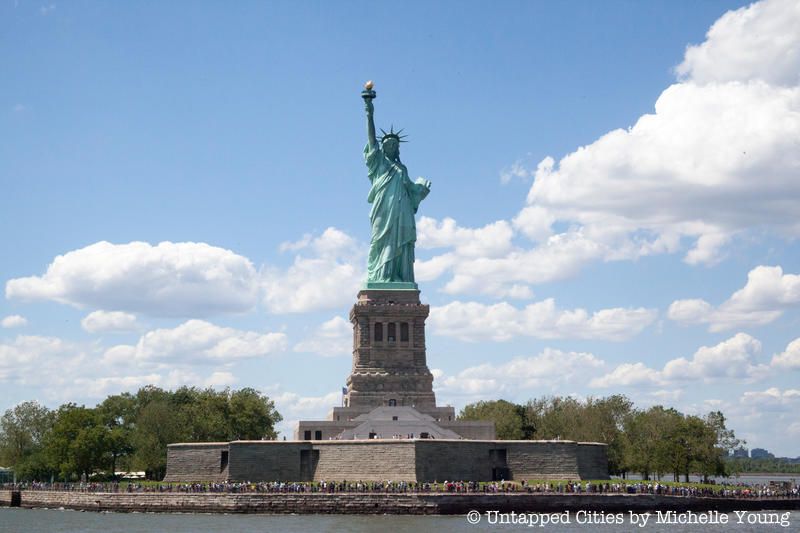
Welcome to a new short series highlighting the many surprising art and architectural finds that are located both in New York City and in Paris. In honor of the 127th anniversary of the Statue of Liberty dedication, we’re starting with this iconic symbol first. While the statue on Liberty Island is the most famous, it is far from the only one in existence.
The Statue of Liberty (officially Liberty Enlightening the World) has always maintained a connection to its native France. It was dreamt up by Edouard Rene Lefebvre de Laboulaye, a French abolitionist, lawyer, and poet. Its exterior was designed by Frederic Auguste Bartholdi, the French sculptor, its interior created by Gustave Eiffel, the French engineer. It was built in France and paid for by its citizens.
Besides Liberty Island, the Statue of Liberty can also be found in at least four other locations.
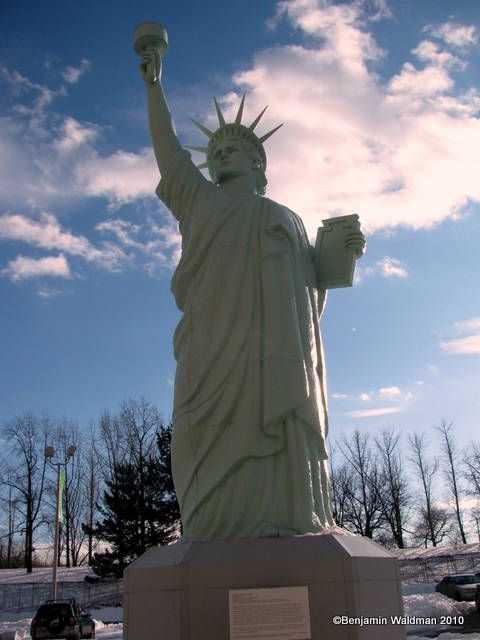
Around 1900, William H. Flattau, a Russian auctioneer, commissioned a thirty foot replica of the Statue of Liberty for the roof of his Liberty Warehouse on 43 West 64th Street. In 2002, when the warehouse was converted into apartments, the statue was brought to the Brooklyn Museum. It currently resides in the museum’s Steinberg Family Sculpture Garden.
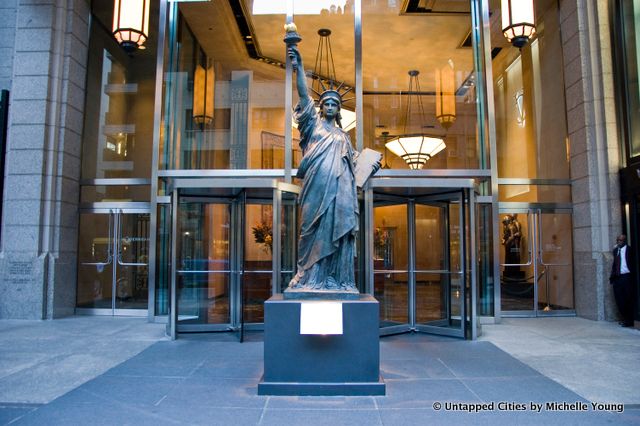
Located in front of 667 Madison Avenue is bronze Statue of Liberty that was cast from the original mold. It was purchased by Leonard Stern for over one million dollars. Mr. Stern is the chairman of The Hartz Group, which owns 667 Madison.
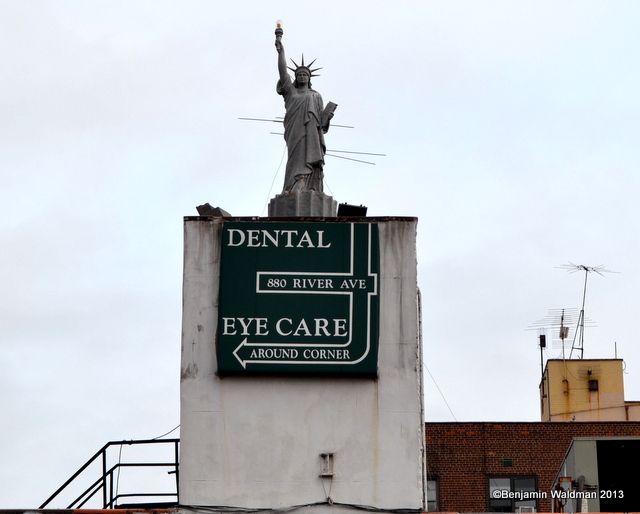
A surprising find between Yankee Stadium and the Bronx County Courthouse, the providence of this Statue of Liberty imitation is quite mysterious.
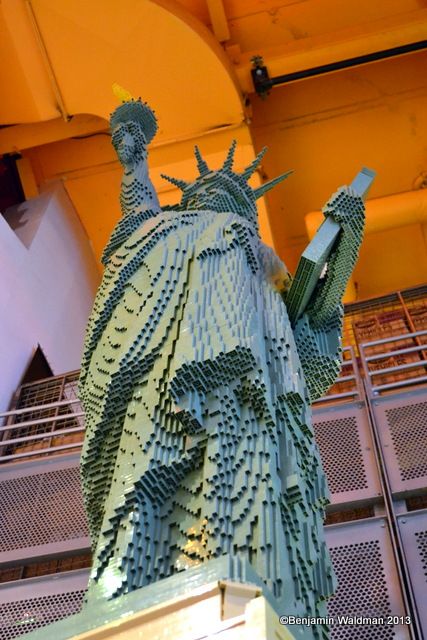
Visitors to the Times Square location of Toys R Us can take in Lego models of New York City landmarks including the Statue of Liberty, but the store will close at the end of January 2016 when its lease is up.
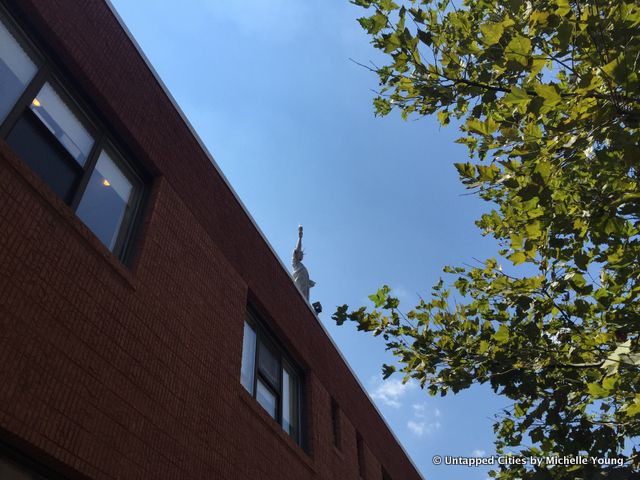
On an industrial stretch of Long Island City, between the waterfront and MoMA PS1 is a Statue of Liberty standing atop a building, which also has a miniature water tower on the facade.
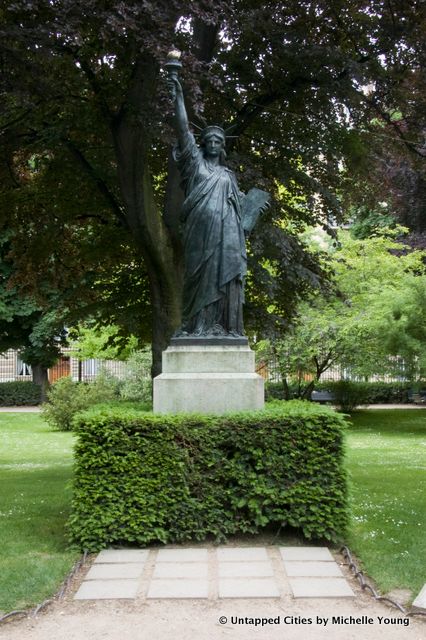
This is the original model for the Statue of Liberty, used by Bartholdi to create the larger version for New York City. The sculptor donated it to the Luxembourg museum for the World’s Fair of 1900 and it has been in this spot since 1906.
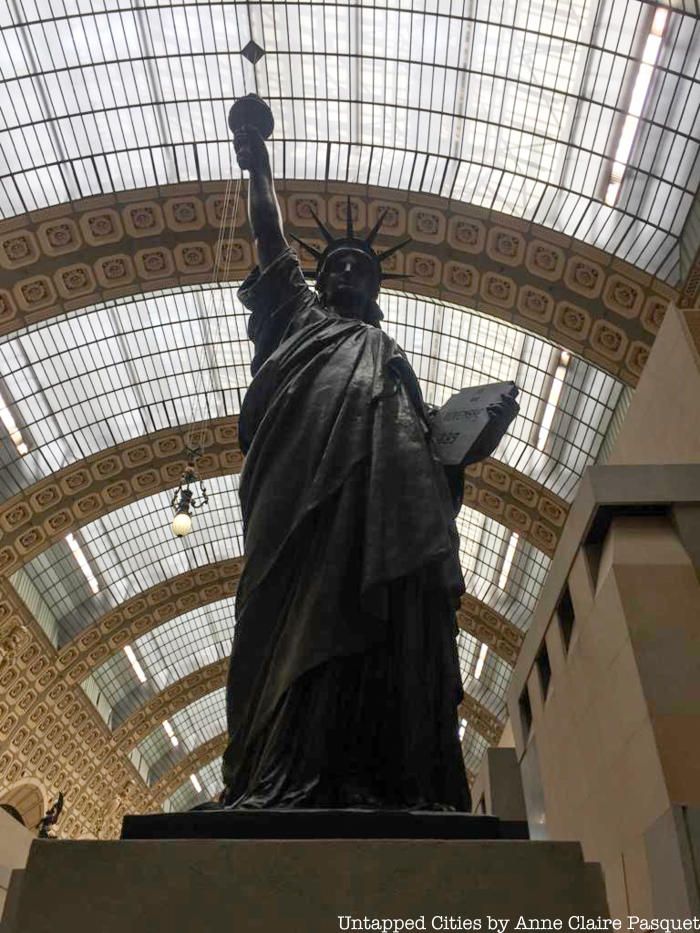
This statue was cast from a plaster prototype of the original statue to mark the 100th anniversary of the French Revolution. In 2012, it was moved from the Luxembourg Gardens to the Musée d’Orsay, given a new torch, restored and polished.
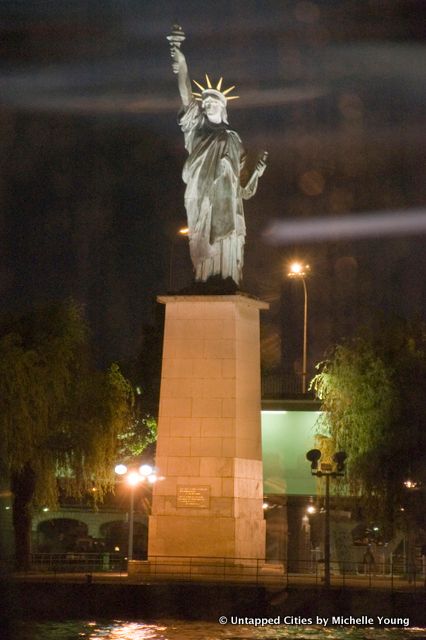
This version sits on a manmade island in the Seine River. It was inaugurated close to the 100th anniversary of the French revolution, on July 4, 1889, and has two dates on the tablet–July 4, 1776 and July 14, 1789–to mark the revolution in both nations.
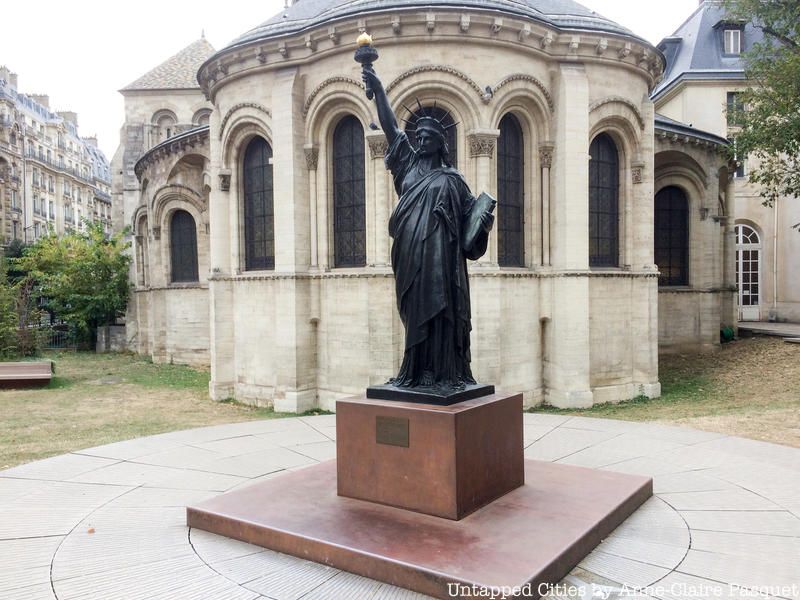
The original plaster sculpture, which Bartholdi used to make his masterpiece, was bequeathed to the museum by his widow in 1907. In 2005, the French art dealer, Guillaume Duhamel, rediscovered the sculpture while accompanying his son’s elementary school class on a visit there. He convinced the museum to let him create 12 casts from the plaster original (the maximum allowed under French law) and the museum would get to keep the first cast, which is now on view there.
The sculpture will travel to New York City and Washington D.C. in July 2021 for a visit celebrating July 4th and Bastille Day.
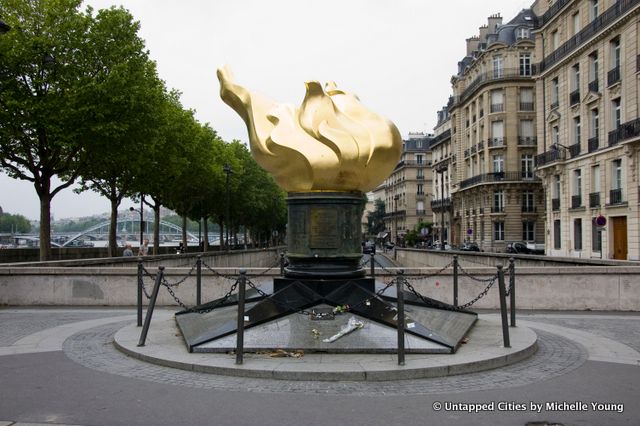
This is a life-size copy of the flame of liberty on the Pont de l’alma, not too far from the Eiffel Tower. It was given to the city by donors around the world to symbolize Franco-American friendship on the 100th anniversary of the Statue of Liberty dedication. Because it sits above the tunnel of Princess Diana’s fatal car crash, the torch and the wall behind it has become an unofficial memorial.
Next, see vintage photographs of the Statue of Liberty under construction.
Subscribe to our newsletter